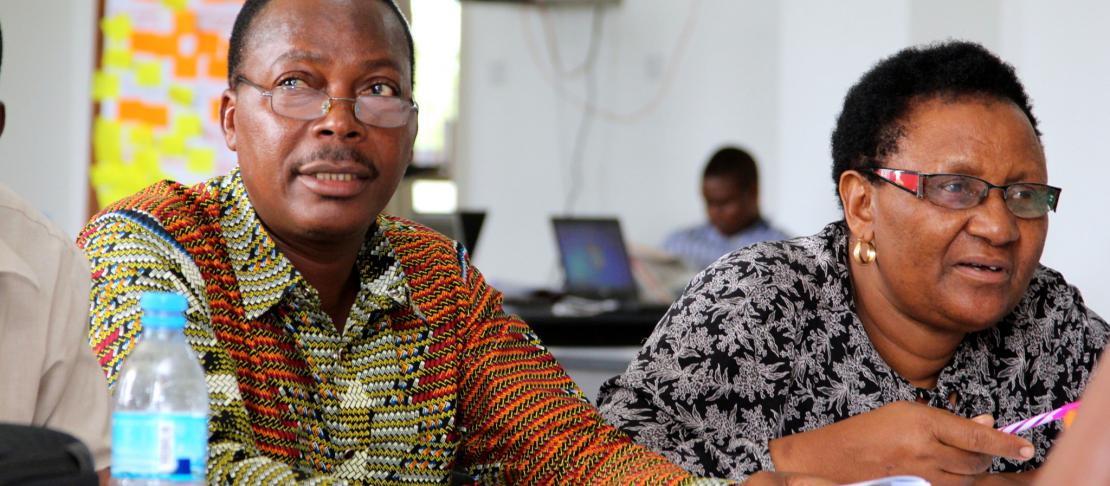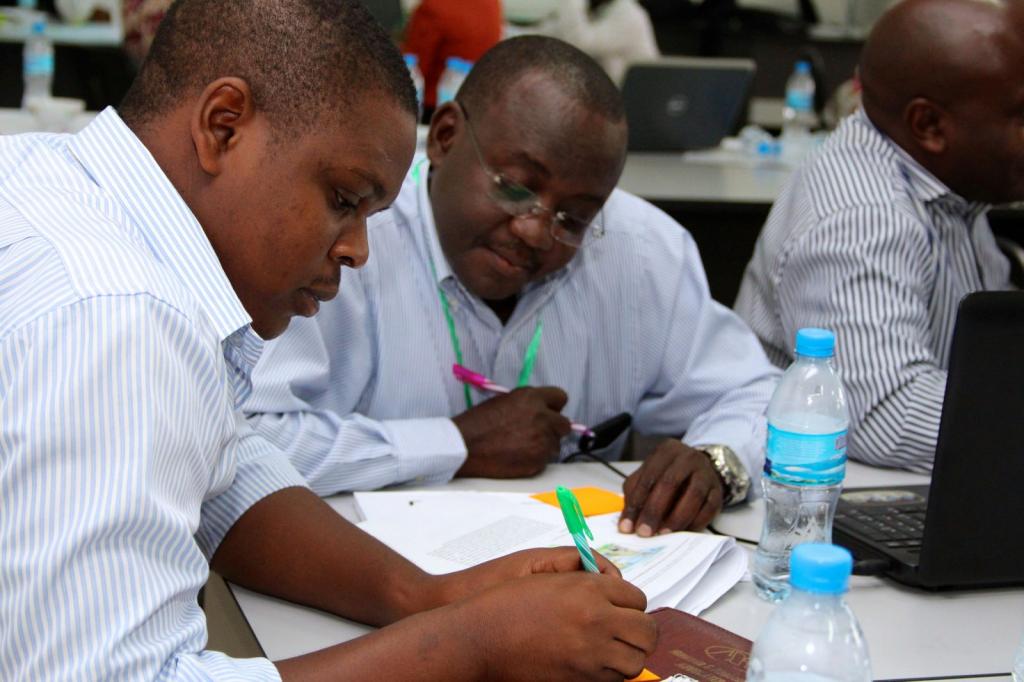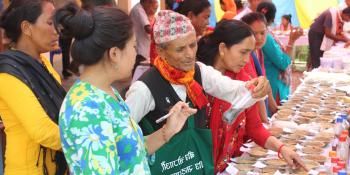Scenario-guided policy planning makes headway in Tanzania

Extensive CCAFS-supported research project uses future scenario perspectives to help policy-makers review Tanzania’s new environment policy.
A collaborative spirit and continued engagement with project stakeholders usually make for great success and progress. That is also how the Policy Action for Climate Change Adaptation (PACCA) project works, as they are continuously supporting policy-makers from Uganda and Tanzania as they implement proposed scenario-guided improvements into national strategies; improvements drafted during two successful back-to-back future scenarios workshops in February.
The PACCA project works to develop climate-resilient food systems in the two countries through relevant and flexible institutions and policies. The project is led by the International Institute for Tropical Agriculture (IITA) as part of CCAFS policies and institutions research.
PACCA has teamed up with CCAFS Future Scenarios group from the University of Oxford, to collaborate on providing scenario-guided advice to further improve relevant policies and strategies under climate change.
Taking a look at Tanzania's environment policy
For the February workshop, policy-makers and researchers from Tanzania were interested to see how their newly drafted National Environment Management Policy (NEP) would fare under various socio-economic and climate scenarios.
These scenarios have been quantified through two agricultural economic models: GLOBIOM, developed by International Institute for Applied Systems Analyisis (IIASA), and IMPACT by International Food Policy Research Institute (IFPRI).
During the intensive two-day workshop, the policy was put through the test by looking at different future scenarios for Tanzania. This future casting helps make assumptions and create policies against multiple, all highly potential scenarios for a country.
Watch video from the back-to-back workshops in East Africa:
In a sense, the activities help ‘crash test’ policy frameworks and through suggested changes make it more robust against climate change and other challenges.
After the workshop, the PACCA team has supported the process remotely, but at the end of April members and participants got to meet up for a second time in a writeshop aimed to support a second scenario-guided implementation and improvement round of the Tanzanian environmental policy.
Preparing for a third policy draft
The writeshop kicked-off by presenting the developed scenarios to the participants, a helpful reminder allowing participants to carry on for another four days of intensive policy advancement and reviews. The members were also set to integrate comments received from the National Multi-sectorial Taskforce and the Technical Review Panel Committees in Tanzania. These two committees are national level entities with the overall responsibility of the policy review process.
The days comprised a series of small group activities, reviewing and rewriting specific sections of the policy, allowing for further comments from plenary presentations and again incorporating these into the strategy, so that all key elements were captured.
The environment policy has been sectioned into four different themes, namely (i) agriculture and land use (ii) industry and services, innovation and resilience, (iii) environment and ecosystems and (iv) socio-economic and health. Each of these themes has been reviewed against recommendations of the previously developed scenarios.

Photo from the February workshop in Tanzania. Credit: E. van de Grift.
Everyone supporting this process participated in the writeshop, including the consulting firm Social Economic Research Foundation (ESRF) who prepared the policy, and the Future Scenarios team, guiding the activities remotely.
Other participants included officials from the Vice President’s Office, various ministries including Prime Minister’s Office Regional Administration and Local government, Ministry of Agriculture Food Security and Cooperatives, Ministry of Livestock and Fisheries Development, Ministry of Natural Resources and Tourism, Ministry of Water, Ministry of Health and Community Welfare, Ministry of Transport, Ministry of Education and Vocational Training, and representatives of PACCA’s Learning Alliance and other stakeholders.
The activities helped complete the draft of the policy along with further scenario-based comments.
The document will be handed over to the consulting firm to integrate the comments and therefore develop a third scenario-guided draft. This third draft is very much based on the scenario development work undertaken in February and throughout, up to the April writeshop.
In fact, government process leaders said that the scenario-based review in February showed that a third review round would be essential. The policy draft will be advanced through stakeholder consultations before being handed over to the Tanzanian cabinet.
In parallel, the PACCA team will meet with ESRF separately to discuss ways to best integrate the scenario comments into the draft. The scenario development process was specifically appreciated for providing the space for constructive criticism to some of the issues that had been identified.
The meeting with the consulting firm co-responsible for the policy writing process will develop a joint way forward to ensure that the scenario development process can further benefit the review process where necessary.
Lessons learned
It may be a tough journey to achieve development outcomes, particularly in a multi-stakeholder setting, but the team is thrilled that efforts are starting to yield great results. A few factors have led to this seemly fast process:
- Continuous identification of potential opportunities for achieving outputs, hinged on result-based management principles;
- Willingness to network with others and pool collective effort where applicable;
- Creativity, innovativeness and flexibility in the way things are done;
- Openness, flexibility and a focus on user ownership in the method (scenario-guided policy design) and the content (the scenarios and the policy recommendations).
- Openness and transparency in communication; about project objectives, mandates, resource availability and outcomes.
Through the nature of PACCA’s work, there are also great opportunities to share lessons learned between Tanzania and Uganda. With Tanzania leading the process, anything learned in the engagement with participants and drafting the policy can now be used in Uganda. Practice makes perfect as is usually said. The PACCA team is now close to reaching one of its set outcomes, thanks to engaged participants, the support from CCAFS Future Scenarios team and dedicated staff members and colleagues.
Related reading:
- Project takes action for climate-responsive policies in East Africa
- Testing climate and agriculture policy against future scenarios
Researchers Edidah Ampaire and Perez Muchunguzi both work with the PACCA project, based at the International Institute for Tropical Agriculture (IITA). Cecilia Schubert works as Communication Officer for CCAFS Policies and Institutions Flagship.
Interested in policies and institutions for climate-resilient food systems? Subscribe to our newsletter.



